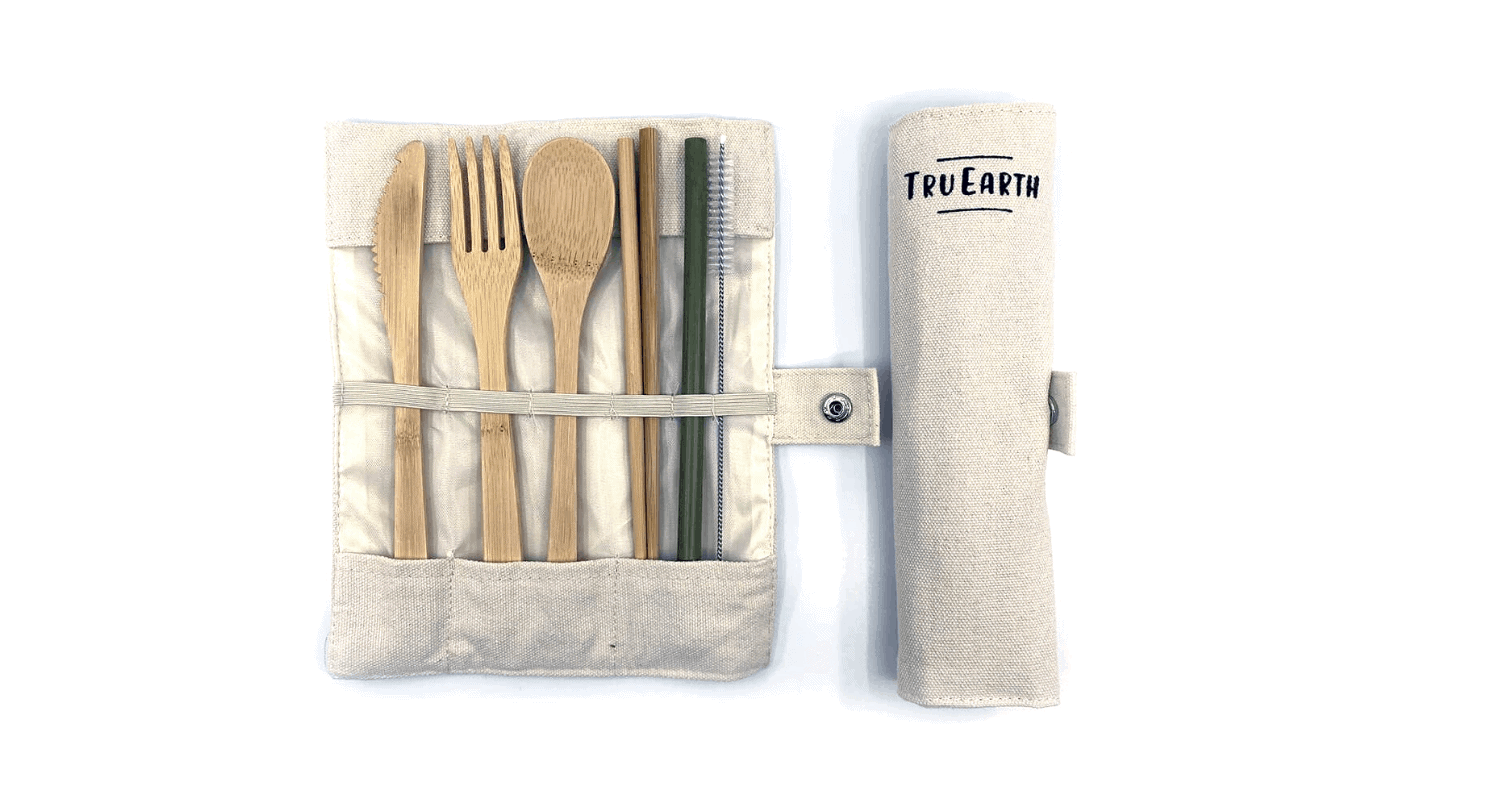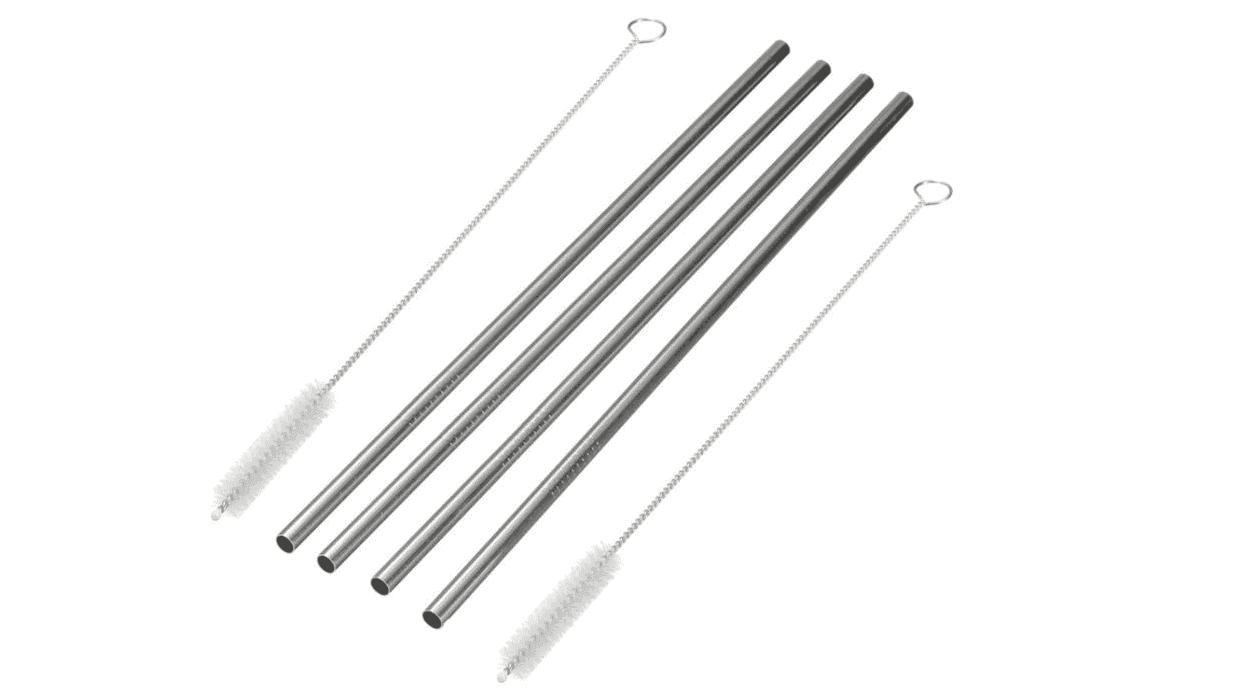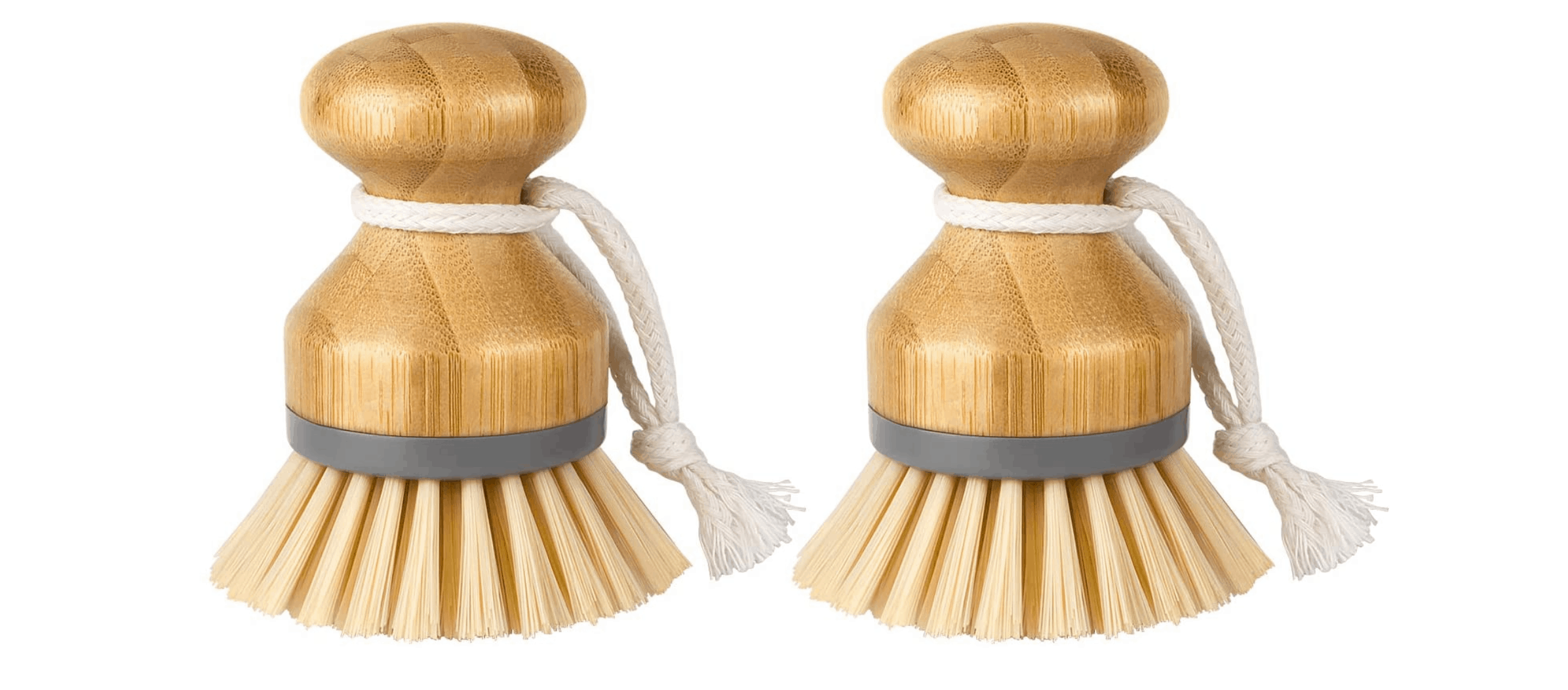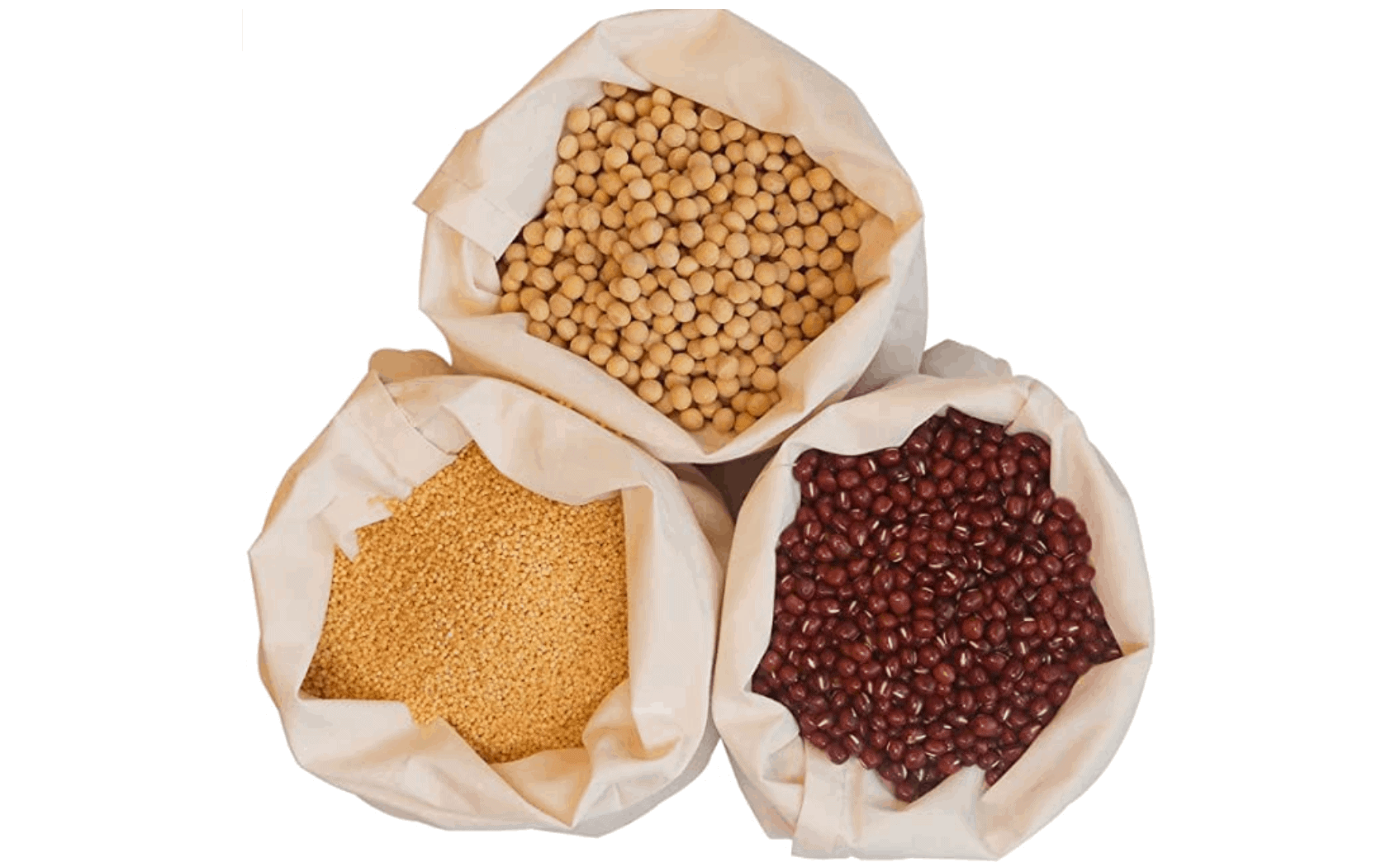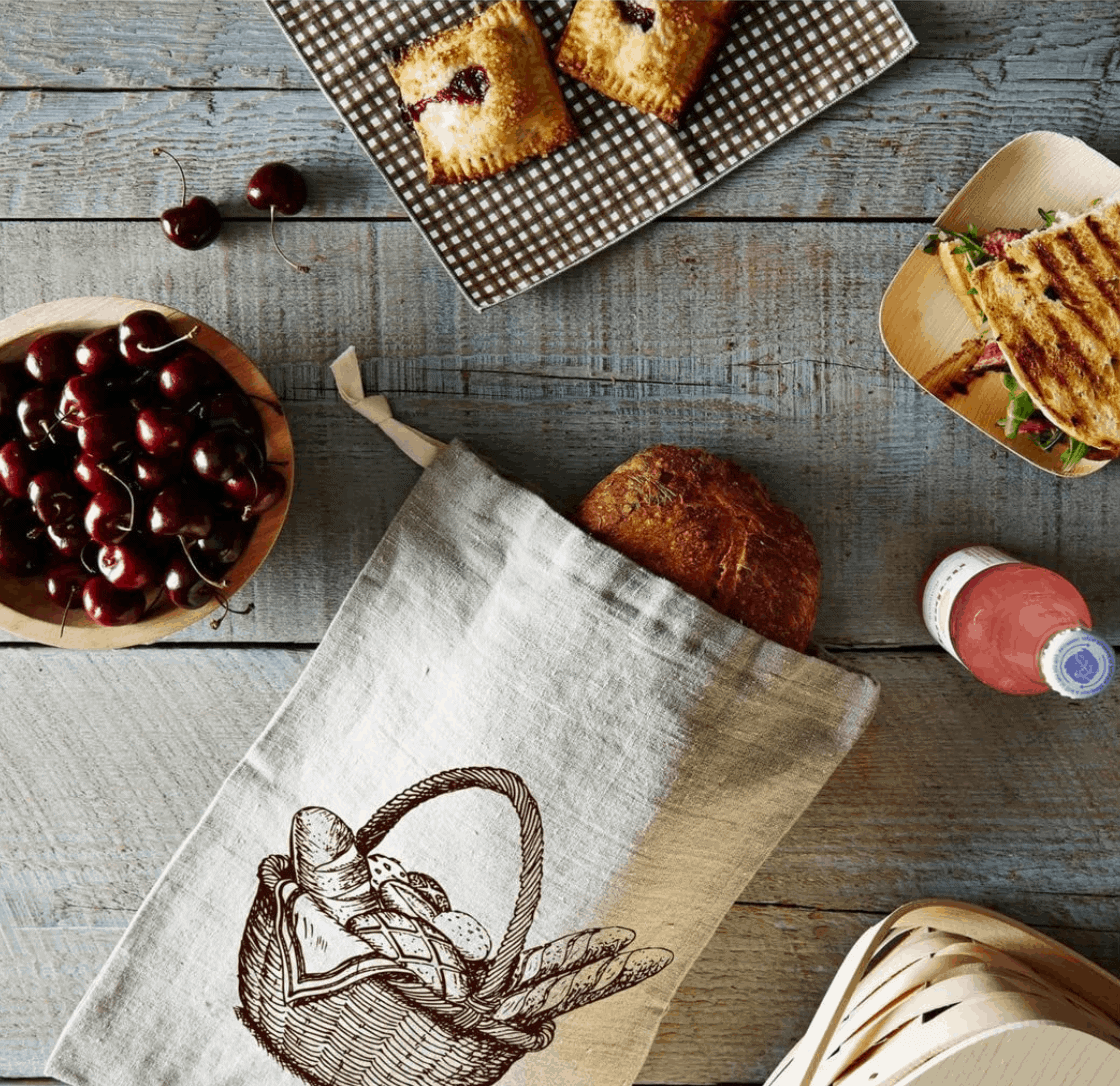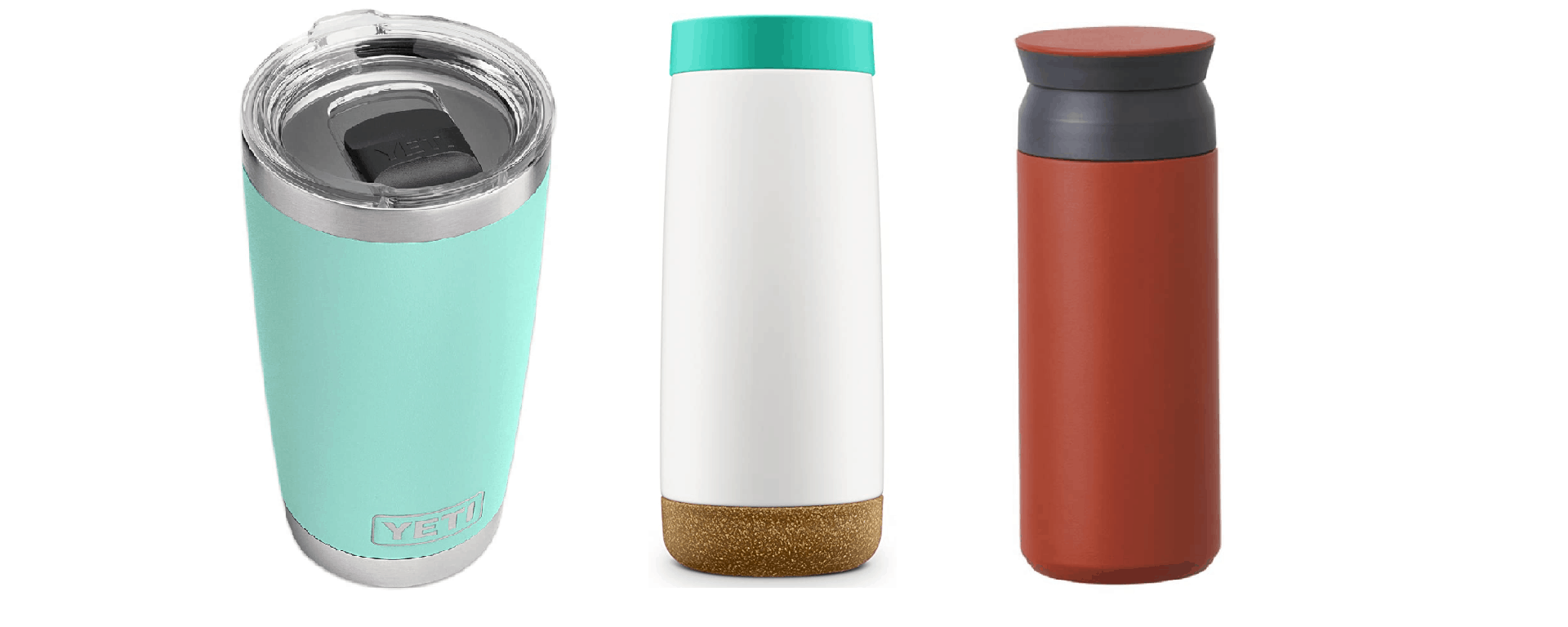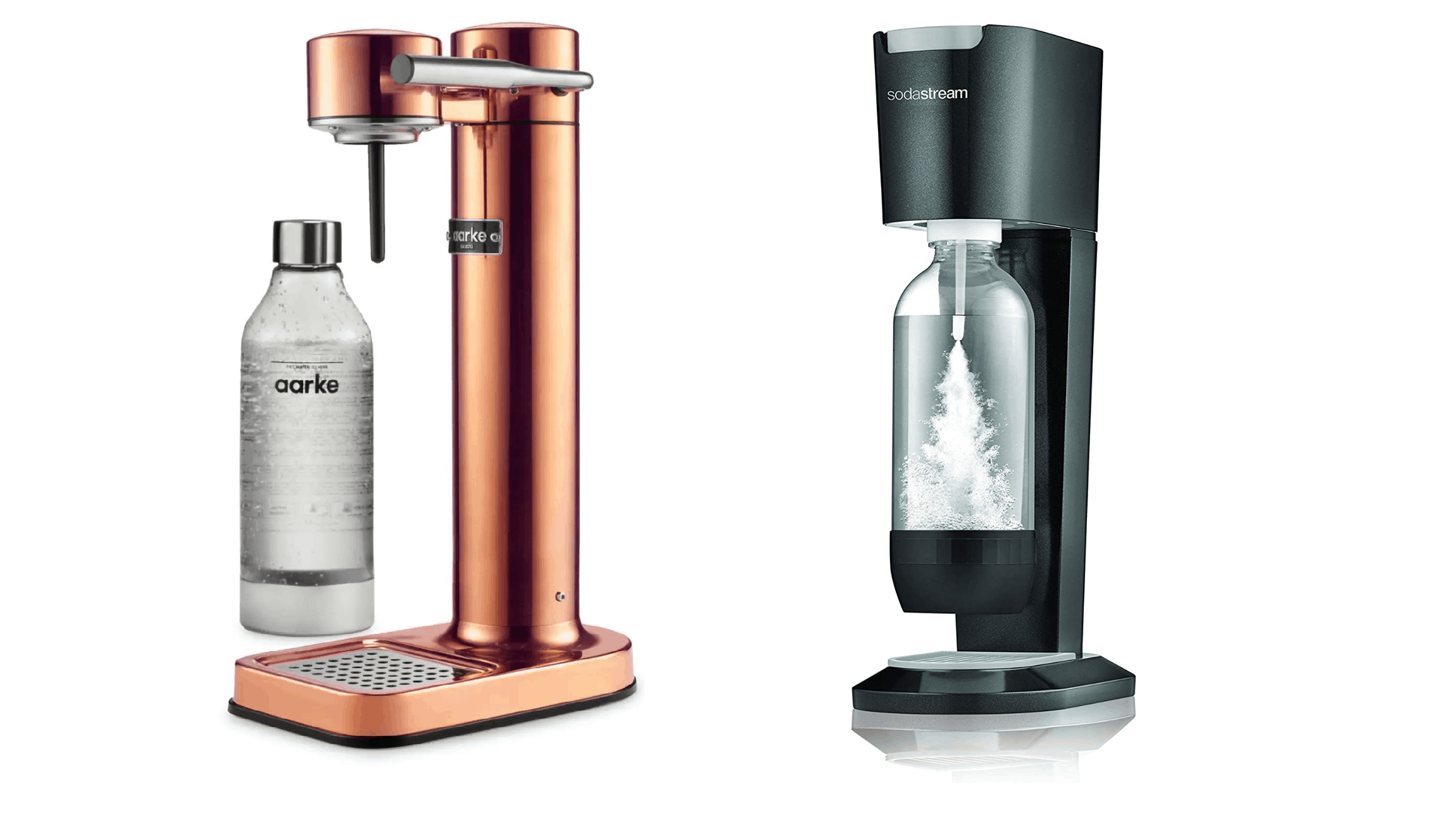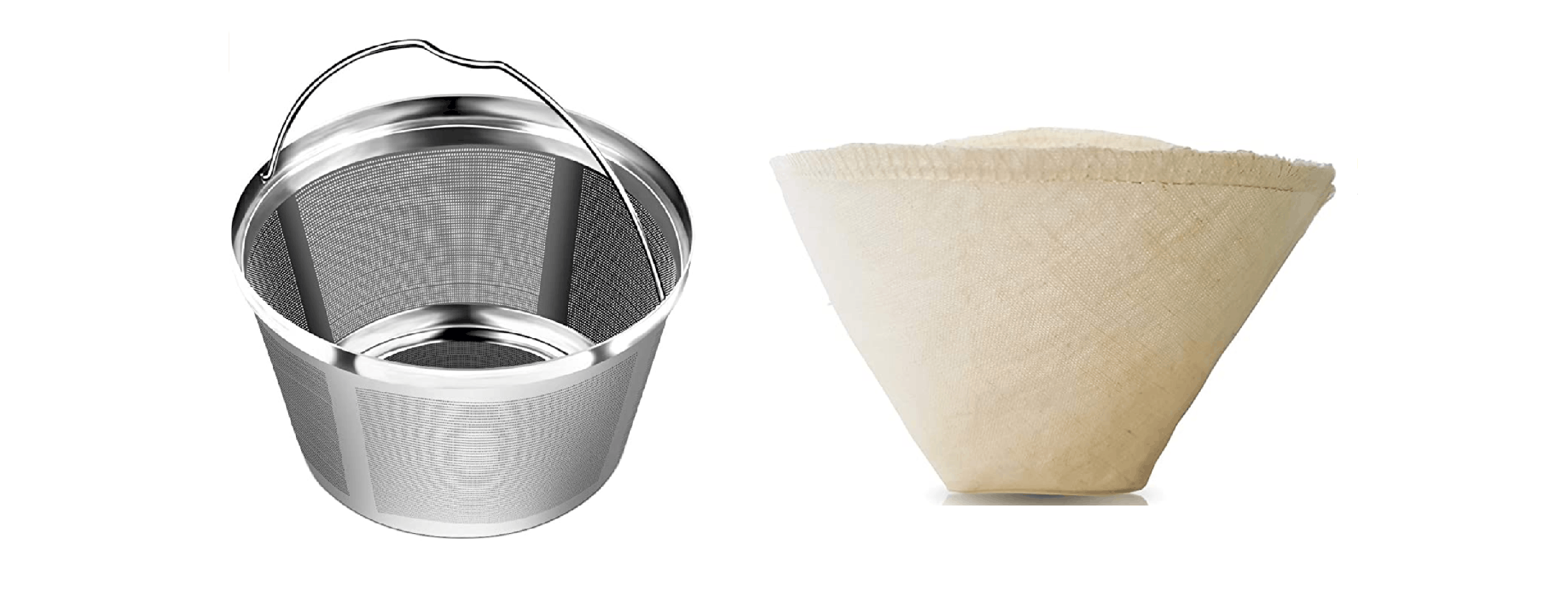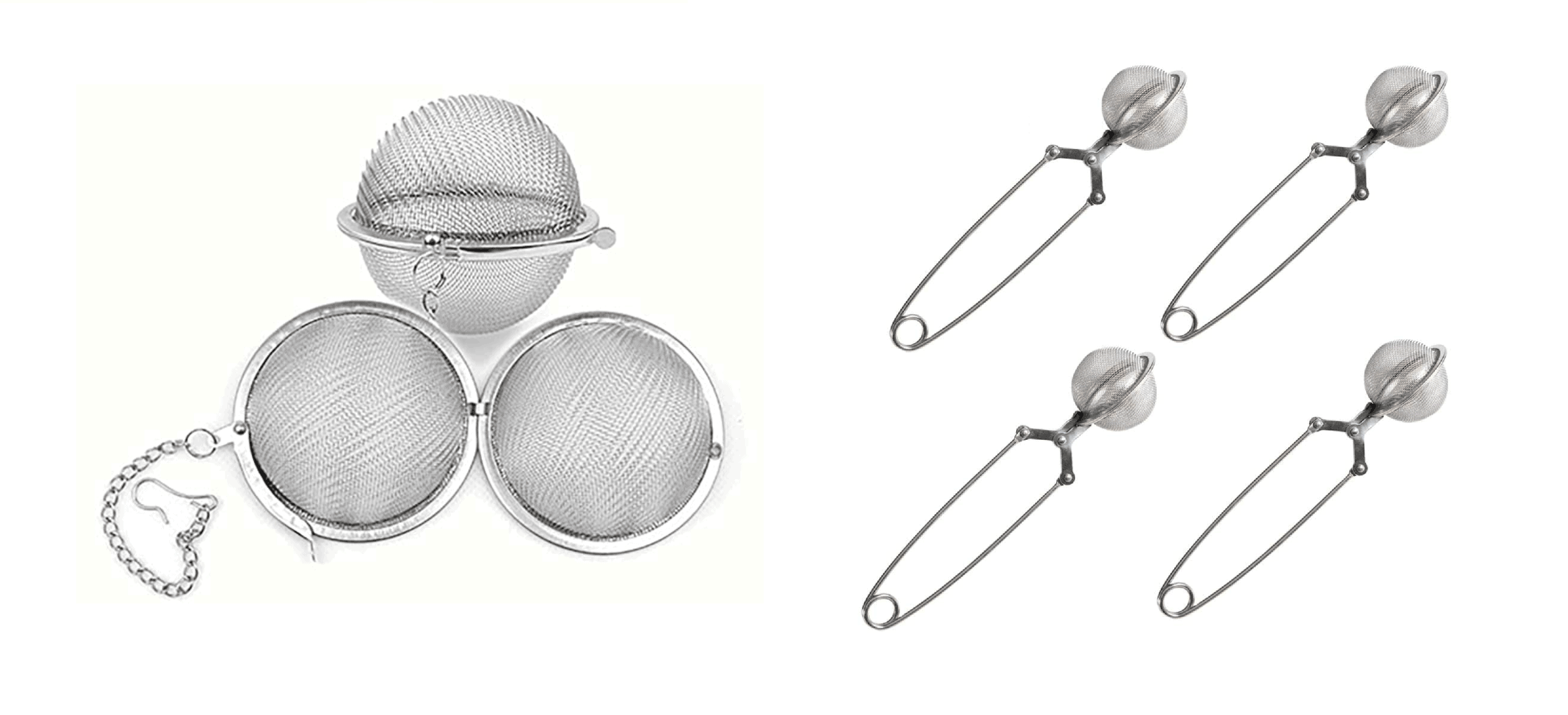We live in a world of convenience and "throwaway culture."
Think about it: Straws, plastic bags, water bottles, cellophane food wrapping and Styrofoam containers are an entire class of products engineered for micro-lifespans. In other words, they populate our landfills after the briefest of uses. What's more, their low price points utterly fail to account for the true "net cost" of production, which includes resource extraction, the energy required to manufacture, and both international and domestic shipping.
At Environment911, one of our core values is the idea that “little hinges swing big doors.” We believe that small actions can amount to big change. Small actions, habits and purchase decisions, like swapping out these single-use disposable items for more durable kitchen goods, can make a big—maybe even a radical—difference.
20. Beeswax food wrap...instead of plastic wrap and sandwich bags
Beeswax food wrap is made of a fabric—most often cotton—which has been coated with a layer of food-grade beeswax, rosin (a form of plant resin), and coconut or jojoba oils. The result is a flexible yet grippable, tacky textile which can be used as a Cellophane substitute. Use it to wrap partially consumed cheese, fruit and vegetables, as a temporary container lid or to transport sandwiches and other dry-prepared foods or snacks. When taken care of, one beeswax food wrap can last 150 to 250 uses, or about a year. Disposal is easy—just toss it in the compost or organics bin.
19. A bento box lunchbox…instead of paper bags and plastic baggies
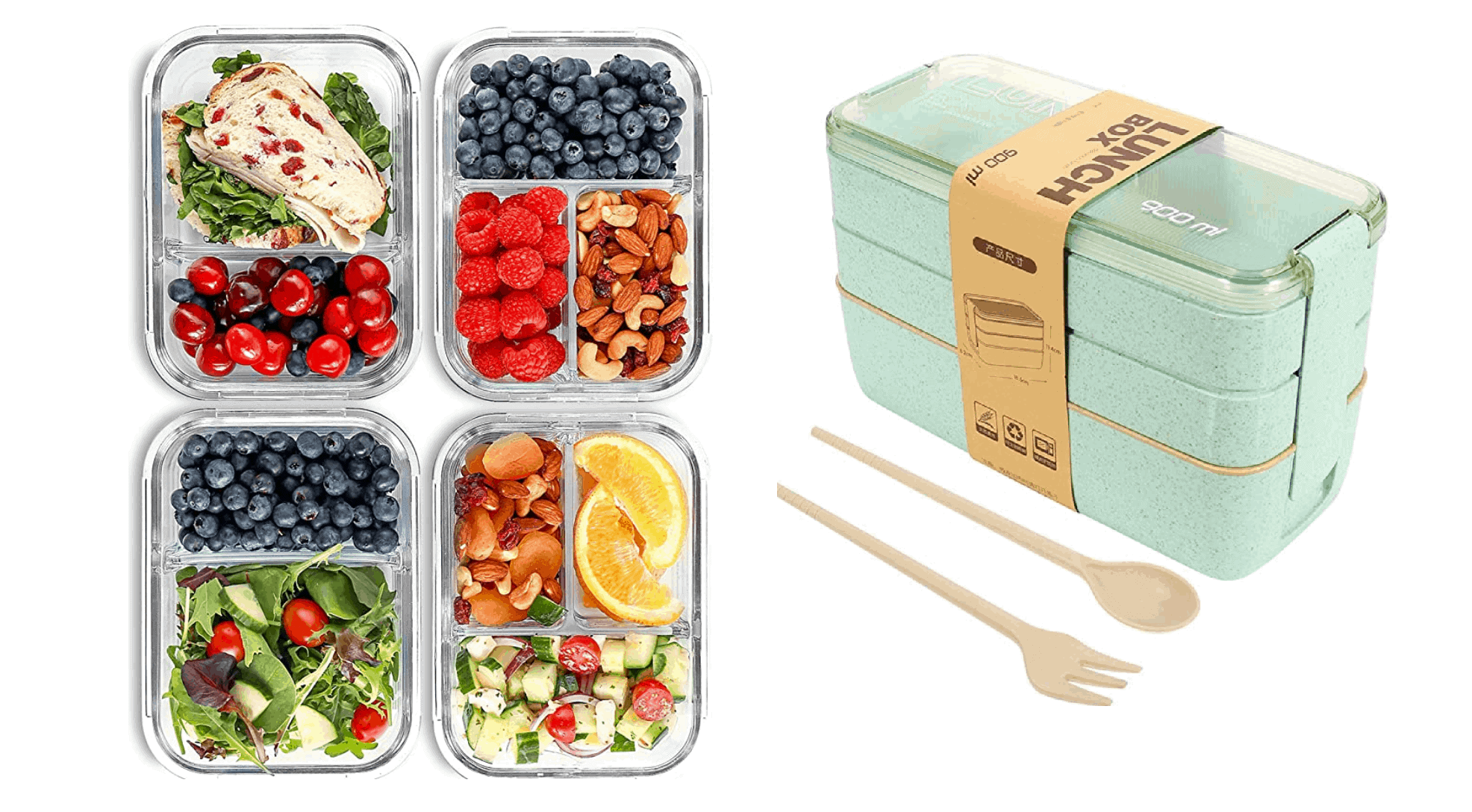
Ditch the sandwich baggies and paper bag entirely with a bento box lunchbox. Another upside? You won’t have to tote (and clean) multiple lunch containers. For lunches containing leftovers that need to be reheated, we recommend one made of wheat straw (a hardy yet compostable natural plastic) or glass. For meals that won’t be microwaved, this stainless steel lunchbox boasts a leak-proof lid.
18. Bamboo utensils...instead of plastic forks and knives
When dining on the go, it's incredibly hard to resist using plastic utensils. Compostable alternates are more expensive for food purveyors to provide to their customers, so they can be hard to come by. Owning a bamboo cutlery set means never being stranded without a spoon. Tip: Look for a set that comes in a handy carrying case so you won't misplace items between home and the office.
17. Stainless steel straws...instead of plastic straws
It's 2020 and truly, no one needs to be drinking from a plastic straw. We don't much care for paper or bamboo straws which fall apart quickly. Instead, we prefer stainless steel straws for their durability, dishwasher-safe construction (they will not rust) and zero aftertaste.
16. Reusable bags...instead of plastic grocery bags
 Romaset
Romaset
BYOB—that's bring-your-own-bag—has been a popular idea for years now with most shops selling their own branded totes. Sturdy, reusable bags are easier on the hands than strained, awkward plastic bags, especially for apartment dwellers who must travel multiple storeys between the parkade and their front door.
For those with big families who drive to the grocery store, reusable and even collapsible bins and crates are a clever solution.
A simple European-style string market bag is as fashionable as it is convenient. Toss one in the bottom of a purse; it takes minimal room and you'll always have a bag on hand.
Wait, are reusable bags better for the environment?
In 2018, Denmark's Ministry of Food and Environment published a study titled Lifecycle Assessment of Grocery Carrier Bags, comparing the environmental impacts of plastic, paper, polyester and cotton shopping bags. It revealed that generally, "with regards to production and disposal," commonly found low-density polyethylene bags have the "overall lowest environmental impacts for most environmental indicators."
The study found that you'd have to reuse a paper bag 43 times before offsetting the environmental costs of manufacturing it. For a recycled PET tote bag it is 84 times and shockingly, a conventional cotton tote needs to be used 7,100 times.
The bottom line:
What should consumers do? According to this The Atlantic article, "Ecologically speaking, the best practice for tote bags might be one of two extremes: use them all the time, or not at all."
15. Make your own cleaning products & store them in refillable bottles
The household cleaners that line the shelves of grocery stores often contain a laundry list of undisclosed ingredients and according to one study, a little over half contain ingredients that are known to be harmful to the lungs. What's more, these products are all wrapped or stored in plastic bottles and jugs.
The good news? A very simple list of simple, even food-grade, ingredients do the trick for most household messes—safely, cheaply and effectively. All you'll need to get started is white vinegar, Castile soap, baking soda, lemons and reusable amber glass spray bottles.
Read: 35 Easy Eco-Friendly Home Cleaning Hacks You Wish You'd Known Sooner
14. Dishwashing blocks...instead liquid dish soap
From soap to laundry detergent to all-purpose cleaners, an overwhelming volume of the liquid products found in our homes is accounted for by water. Liquids, of course, must be stored in plastic or glass containers and are heavier to ship than their concentrated counterparts, resulting in added environmental emissions. A better alternative is purchasing goods in distilled, bar, block or strip format and then adding the water yourself—starting in an unlikely place: Your kitchen sink.
No Tox Life makes a vegan Zero Waste Dish Block® dishwashing soap that lathers up to cut grease and grime. It's fragrance-free and contains aloe vera so it's gentle on the hands. The massive 637-gram block can last up to a year. (There's a smaller, 167-gram bar, too.)
13. Sustainable sponges
Here’s the problem with conventional sponges: They are often chemically dyed, contribute to microplastic leaching (which can reach the ocean and then enter the food chain), and are made of synthetics which are not biodegradable. Also, some sponge manufacturers boast “microbial protection” which translates to an added coating of chemicals. (Ew.)
Goods news, better—and just as effective—alternatives exist.
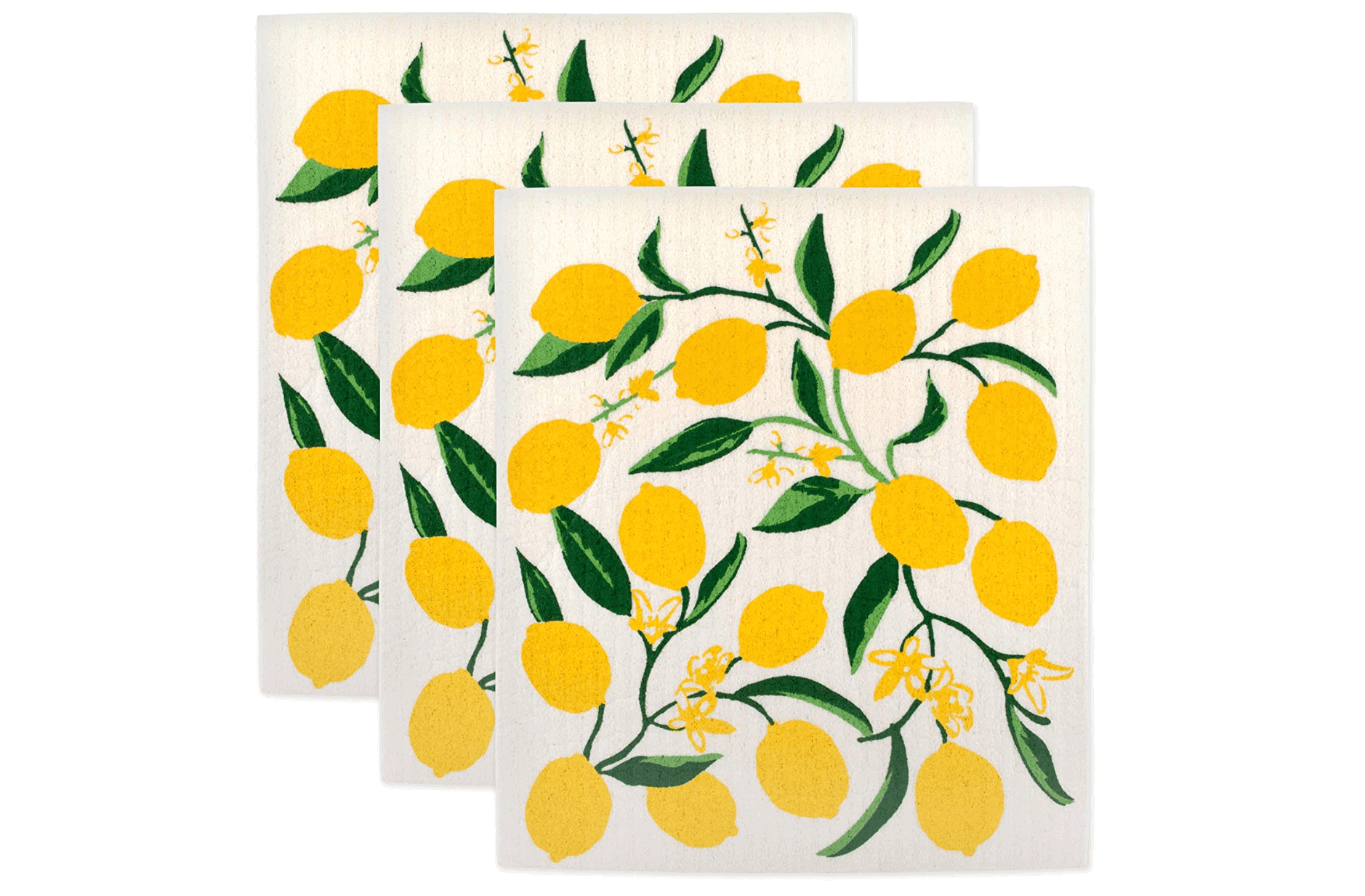 DII
DII
For scouring, there are coconut, hemp or bamboo bristle brushes. For gentle, non-abrasive cleaning, we like cellulose sponges which are made from wood fibres. Note: It’s important to purchase cellulose sponges with care to ensure no polyesters are hiding in the filling. All of the above can be tossed in the organics bin or composted at the end of their shelf life.
Side Note: We're not big fans of microfibre clothes, despite their popularity. Here's why: Watch The Story of Microfibers.
Build a zero-waste kit for bulk shopping

The best way to reduce waste and single-use packaging is to shop zero waste. Bulk container shops are becoming a mainstay in big cities, but you’ll also be surprised by the number of goods sold in bulk at a traditional grocery store. It’s also a cheaper way to shop. However, you’ll need to invest in some glassware and eco-friendly bags to package and store your goods.
12. Mesh produce bags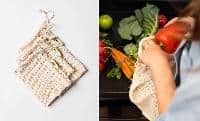 Welling Media
Welling Media
Instead of using the single-use plastic bags commonly found in the produce section of a grocery store, BYO-Bag—a Reusable Cotton Mesh Produce Bag, that is. When shopping for a mesh produce bag, look for sturdy construction that can support the weight of bulkier fruit and vegetables. Since the textile will be interfacing with food, organic cotton is preferred.
11. Drawstring cotton sacks
These organic cotton drawstring sacks are appropriately sized for bulk bin purchases of dry items like beans, pasta, lentils, dehydrated fruit, nuts and snacks.
10. Glass jars

Jars are handy for shopping for bulk olive oil, vinegars, sauces, peanut butter and other wet items that need to be tightly sealed. Be sure to make a mental note of the jar’s weight before filling. Mason jars come in standard sizes: Quarts (1L; 32 oz), pints (500ml; 16 oz) and half-pints (250 ml; 8 oz).
9. Mini glass spice jars
Invest in a set of 8-ounce, air-tight mini jars for bulk items like spices and powders. Don't forget to label them as items might look alike once at home. You won't want to confuse cornstarch with baking soda, for example.
8. Linen bread bags
If you shop at a bakery or a grocery store that sells bread by the loaf, you'll notice they're often slipped into a paper or plastic bag. A re-usable linen bread bag eliminates single-use packaging and if it's big enough, can accommodate multiple loaves or buns. Once home, transfer your baked goods into a bamboo bread box.
Say bye-bye to beverage bottles and cans
Once upon a time, glass bottles were made by hand and costly to own; beverages were typically poured and served from barrels in commercial establishments or brewed at home*. By the early 20th century, glass bottles were being mass produced. In 1916, Coca-Cola introduced its signature glass bottle; by 1935, the beer industry switched to cans; and in 1947, the world started its love affair with plastic bottles. It wasn’t until the mid-1960s that container waste registered in the national psyche as a problem.
Despite the introduction of per-unit deposit fees and curbside recycling, a 2017 study shows that only 9% of global plastics are ever recycled. In the U.S., the average municipal recycling rate is 35%. Germany, the most efficient, comes in at 68%. It’s proof that in today’s culture of convenience, the best strategy is to get as close to zero-waste as possible.
7. Invest in a water bottle you love
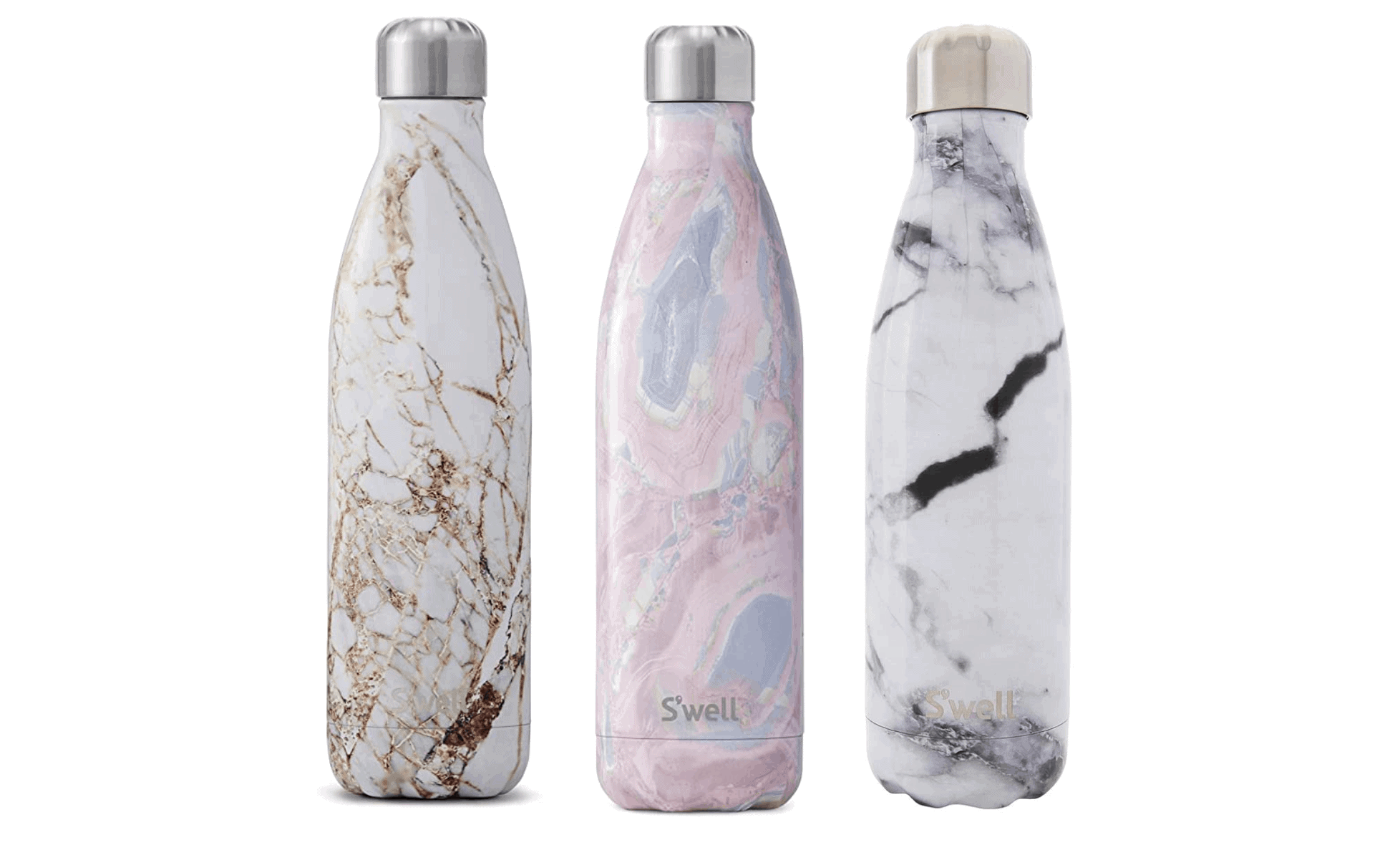 S'well
S'well
The problem with reusable water bottles is that they can start to feel disposable. Typically low cost and found in abundance, water bottles fall victim to an easy-come, easy-go mentality. To commit to using a reusable water bottle, invest in one you'd hate to lose. We prefer an insulated bottle constructed of stainless steel with a narrow neck—for a few reasons. They're dishwasher safe, corrosion-resistant, sturdy, won't absorb an odor or leach in the sun/heat. They have a long product lifespan and stainless steel can be recycled. If you're the forgetful type, keep one in your car, on your desk, in your backpack and in the stroller.
6. Invest in a travel mug you'll actually use (and better beans)
Much like a reusable water bottle, you're not likely to use a travel mug unless you love it. We're talking, well-insulated, totally leak-proof, fits in your cup holder and has a design or print beholden to your heart.
Part two is brewing at-home coffee (or tea) that tastes better than the café near your office or the local drive-thru franchise. This might mean investing in a better coffee maker or upgrading the quality of your beans. Building a preference will lessen the odds that you'll make a convenience purchase served in a single-use paper cup. It'll also save you a ton of money.
5. Kick the can: Bootleg your favourite soda instead
We get it, making the switch to a reusable water bottle is easy when the difference between the taste of tap and bottled water is nominal. But what about your favourite carbonated beverage? Enter a soda maker. While SodaStream exploded into the North American scene in the 2010s, soda makers have long been popular in Europe. (Interesting fact: Pepsi bought SodaStream in 2018.)
All you need to clone your favourite soda is the appliance (typically $99-$330, depending on the brand and design), a CO2 cylinder (which can be exchanged at participating retailers) and syrup. Alternatively, you can blend your own flavours with limes, lemons, cucumber and herbs like mint and basil. Or, drink plainly as seltzer water.
Without cans or bottles to ship and recycle, a soda maker is much better for the environment—and it is kind on consumer’s wallets, too. Investing in a soda maker pays itself off quickly. According to this article, carbonated Voss water is 1,600% more expensive than made-at-home seltzer water when compared at a per-litre cost. San Pellegrino rings in at a premium of 760%.
4. BYOBG (Growler)

Kick it old school and BYO-Bottle.
A growler is a vessel commonly used to transport draft beer. They can be made of amber-coloured glass, stainless steel or ceramic, and typically come in two standard sizes: 64-ounces and 32-ounces. These days, most craft breweries and brew pubs sell their own branded growlers. Purchasing "take-out" beer from your neighbourhood brewer serves two great purposes: Reducing the consumption of bottles and cans, and supporting a local business.
Tip: Fresh beer stored in a growler will last one week in the fridge; be sure to clean and dry well between uses.
You can also use a growler to purchase and store cider or kombucha, which is sometimes sold on-tap in specialty grocery stores.
3. Reusable coffee filters
If you use a coffee machine that requires coffee filters, make the switch to a stainless-steel basket or cotton hemp filters. (If the latter sounds too granola for you, note the 4.5-star Amazon rating!)
If you’re ready to do away entirely with filters, a French press or espresso machine means grinds can be placed directly in the compost or organics bin.
2. Infusers...instead of tea bags
Not only are they a single-use item, believe it or not, tea bags can be a sneaky source of plastic. And since they're steeped in boiling hot water, there exists the risk of leaching. It's estimated that pressed tea bags (the ones with crimped edges) contain 20-30% polypropylene, while pyramid-shape "silken" tea bags—generally considered a premium bag—can be made from nylon, PET or plant-based plastics. The better choice is to choose a food-grade stainless-steel tea infuser.
1. Reusable UNpaper Towels...instead of paper towels
 Marley's Monsters UNpaper® Towels
Marley's Monsters UNpaper® Towels
Made in Oregon, Marley's Monsters UNpaper® Towels are made of single-ply cotton flannel and come in packs of six, 12 or 24. They're just a little bit clingy so you can actually wind them around your traditional countertop paper towel holder.

Free Shipping


